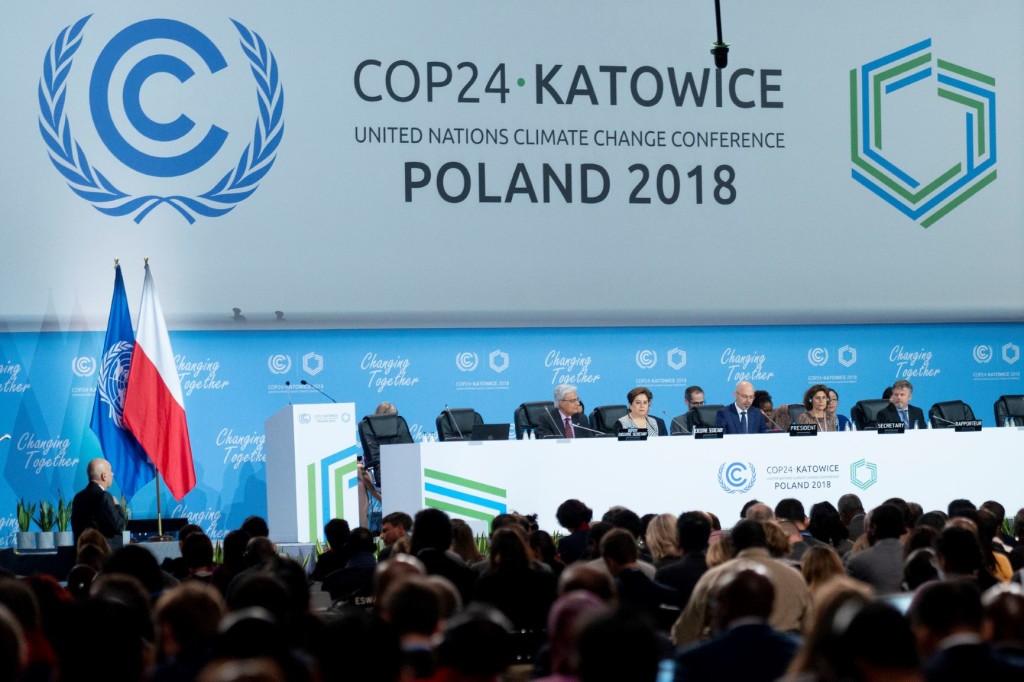By Imelda V. Abano
Three years after signing the historic Paris Agreement, world leaders, businesses and climate advocates converge in Katowice, at the heart of Poland’s coal region, for two-weeks talk to flesh out the rules pertaining to the implementation of the Paris Agreement’s goals of limiting temperature rise to well below 2 degrees Celsius or below 1.5 degrees Celsius if possible.
At the 24th session of the United Nations Framework Convention on Climate Change (UNFCCC) Conference of the Parties (COP 24)COP 24, all 195 nations are expected to strengthen international cooperation to make concrete steps to address the issue. In Katowice, governments must come up with a set of guidelines for implementation or the so-called “rule book” for the Paris Agreement. The rule book will provide clarity on how to implement the agreement with transparency and accountability by all governments on reducing emissions and building resiliency.
On Sunday, Fijian Prime Minister Frank Bainimarama opens the 24th session of the United Nations Framework Convention on Climate Change (UNFCCC) Conference of the Parties (COP 24) and handed over the presidency of the talks to Michal Kurtyka, Poland’s secretary of state in the Environment Ministry.
The climate talks come on the heels of the major Intergovernmental Panel on Climate Change (IPCC) Global Warming of 1.5 degrees Celsius Special Report, highlighting the impacts the world could face from 1.5 C of warming.
Throughout 2018, countries focused on how they can scale up their climate ambition and implementation in the pre-2020 period. All countries share the view that climate action prior to 2020 is essential. Yet, the United States reiterated at the G20 summit in Argentina last week its decision to withdraw from the Paris Agreement and a U.S. commitment to all energy sources.
While much of the crucial work at Katowice will happen behind closed doors as country negotiators hammer out the initial Paris Agreement and clamor for rapid climate action, here’s what to watch for:
Balanced outcomes of the implementing guidelines of the Paris Agreement
Countries need to spur ambition and support the implementation of the “rule book.” Parties need to adopt a clear, robust, cohesive and transparent set of guidelines for all key aspects of the agreement. Countries need to come up with an agreement to strengthen climate action efforts and unlock the progress on finance.
But why it is important to enforce the Paris Agreement? According to the UN, the commitments contained in it are significant:
– Limit global average temperature rise to well below 2°C and pursue efforts to limit the temperature increase to 1.5°C.
– Ramp up financing for climate action, including the annual $100 billion goal from donor nations for lower-income countries.
– Develop national climate plans by 2020, including their self-determined goals and targets.
– Protect beneficial ecosystems that absorb greenhouse gases, including forests.
– Strengthen resilience and reduce vulnerability to climate change.
– Finalize a work programme to implement the agreement in 2018.
Basis of the discussion used for the negotiations at COP 24
The discussions will be based on scientific evidence gathered over the years and assessed by experts. Namely and primarily the following reports:
– October’s “wake up call” Report on Global Warming of 1.5˚C, by the IPCC.
– 2018 Emissions Gap Report, by the United Nations Environment Programme (UNEP).
– 2018 Bulletin on greenhouse gas concentrations, by the World Meteorological Organization (WMO).
– 2018 Ozone Depletion Assessment, by the WMO and UNEP.
Climate Finance
A successful COP 24 outcome will depend on progress in negotiations on climate finance. In 2015, 18 developed countries committed to donating US$100 billion a year for climate action in developing countries. Negotiations are deadlocked on the matter of a post-2025 finance goal.
So far, over $70 billion have been mobilized. Although not formally in the agenda of COP 24, talks on whether developed countries are able and willing to ramp up pledges for the first formal replenishment of the Green Climate Fund, the main multilateral fund under the financial mechanism of the Paris Agreement. It has received so far US$16.3 billion in pledges, of which US$4.6 billion has been paid in.
The Talanoa Dialogue
The Talanoa Dialogue is an important international conversation in which countries will check progress and seek to increase global ambition to meet the goals of the Paris Agreement. Started at the COP 23 hosted by Fiji, countries and other stakeholders such as business, cities, regions and civil society contributed ideas, recommendations and information that can assist the world in taking climate action in support of the Paris Agreement. The Pacific island concept of “Talanoa” aims an inclusive, participatory and transparent dialogue. To date, over 417 submissions were recorded pointing the way towards key opportunities for enhanced climate action.
Climate Justice
Citing the recent IPCC report on 1.5 degrees Celsius global warming, vulnerable countries and climate activists demand for bold, urgent action to keep global warming under the 1.5 degrees Celsius threshold of warming. They clamor for urgent adaptation and mitigation measures, finance to help adopt those at the frontline of climate change impacts. Their call for climate justice and climate action will surely be felt at COP 24.
Katowice won’t be a historic conference. But it will be a conference in which nations come together to ensure the Paris Agreement is successfully implemented. The planet cannot postpone agreeing the new rules. Already the impacts of climate change are being felt ever-more strongly in poorer, low-lying countries. Governments need to step up their climate policies going forward.
photos by: UNFCCC

